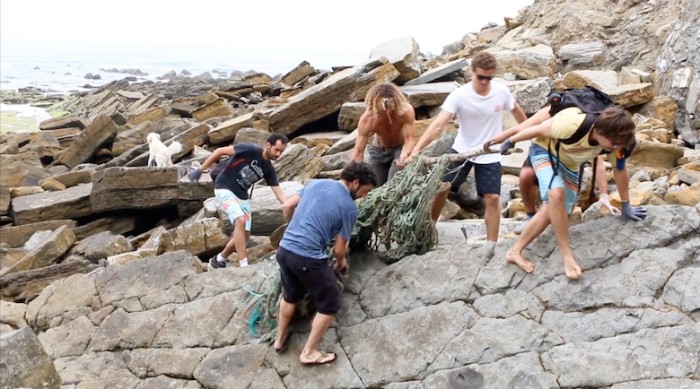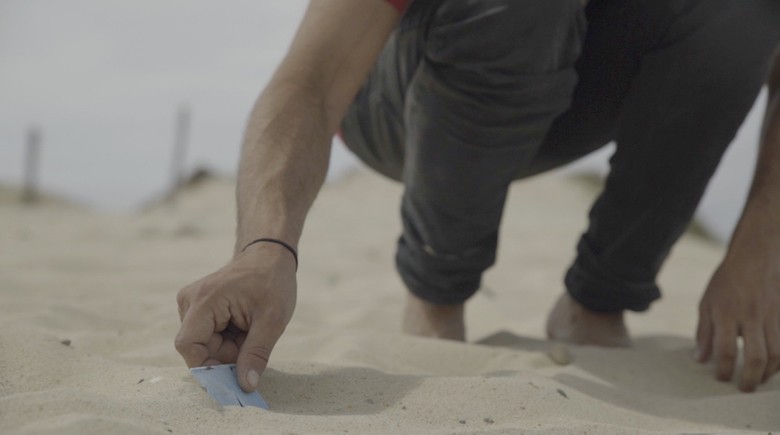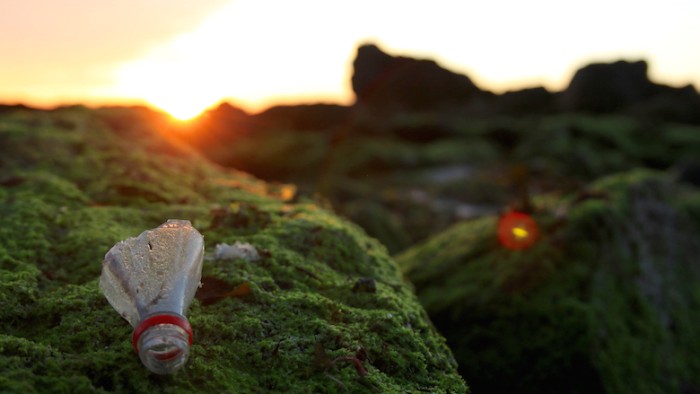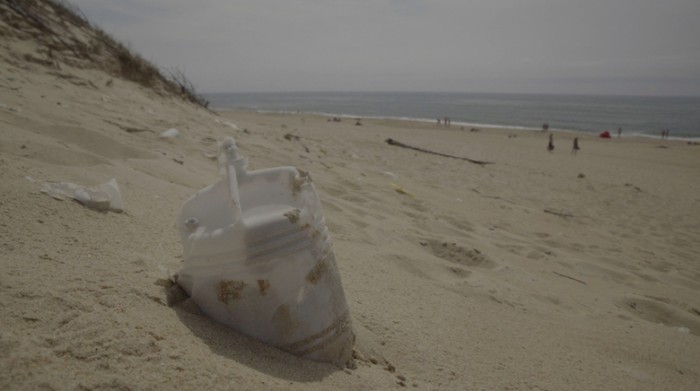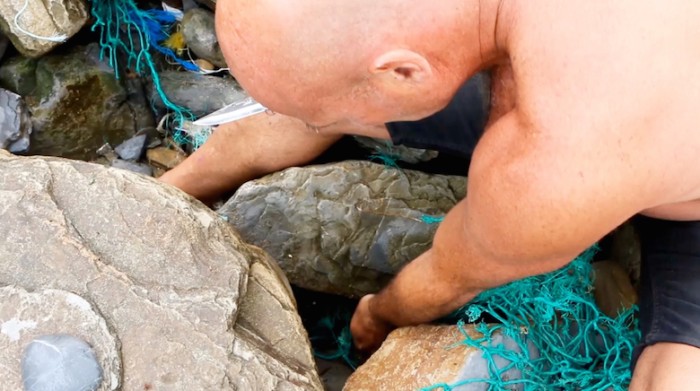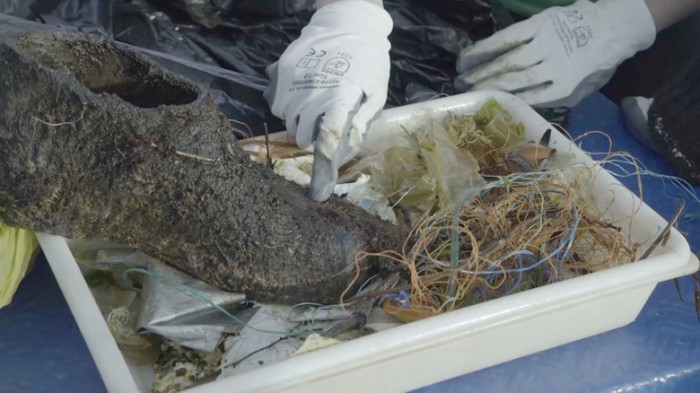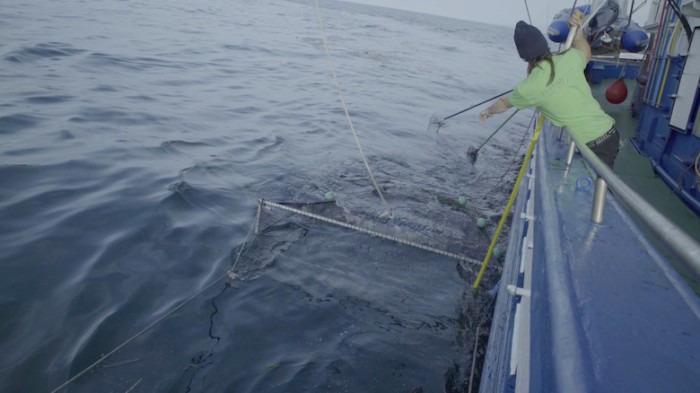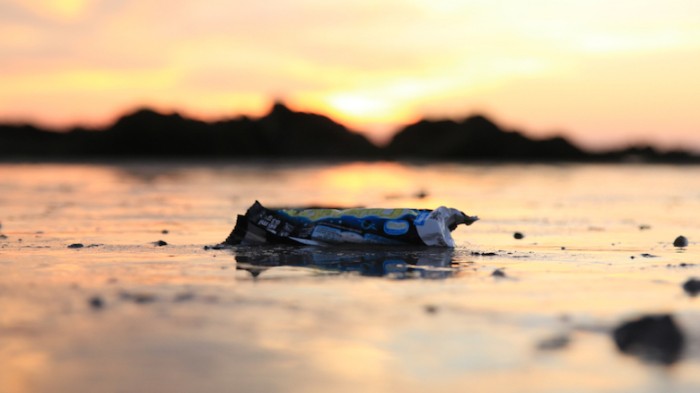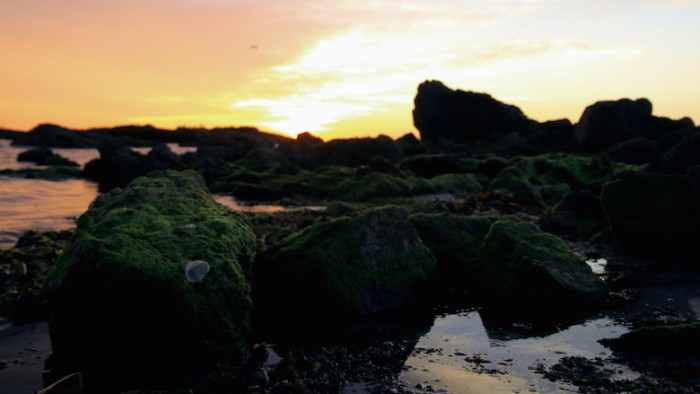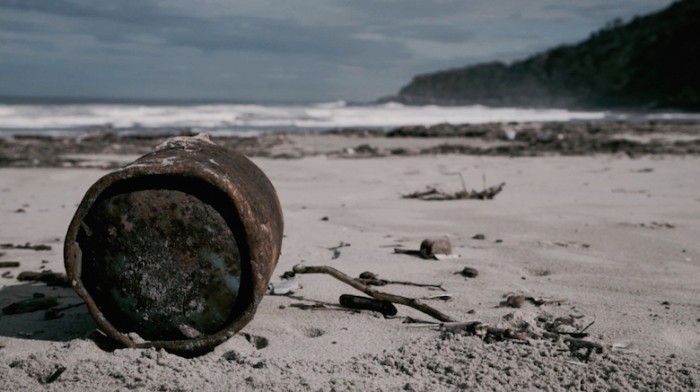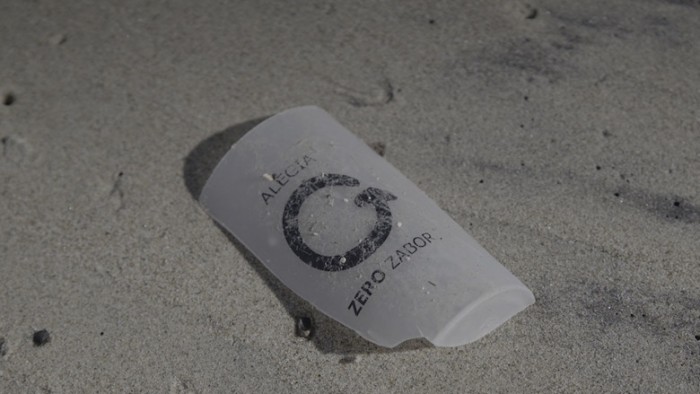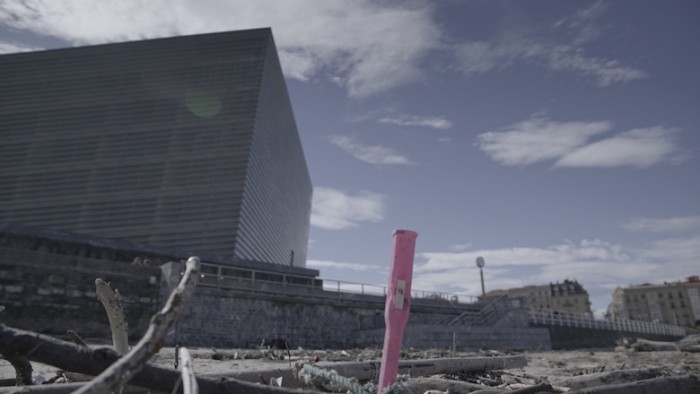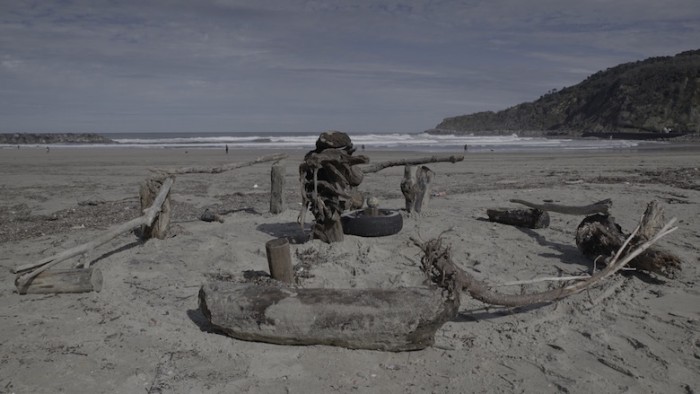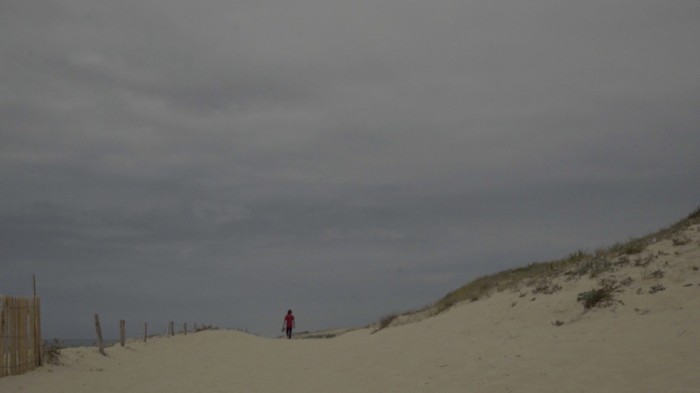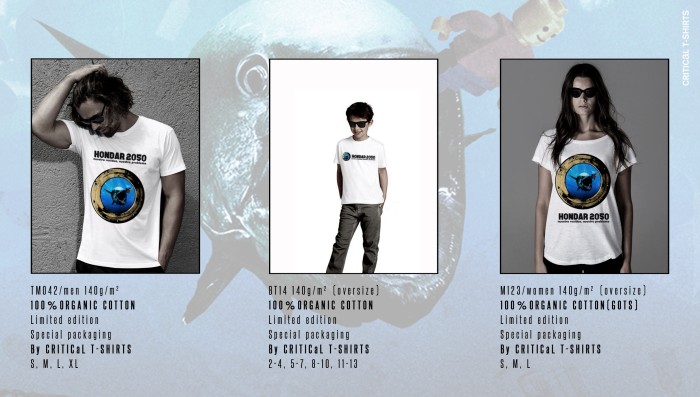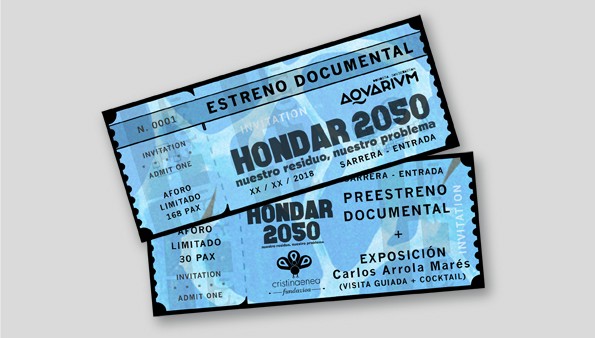We live in a consumer society and we unworry completely about the ending of our consumer objects once they finish their useful lives... Each Spanish citizen produces annually almost 450kg waste on average, recycling less than 30%. The waste we produce we don´t want to see it or smell it. But ¿what happens when this waste gets to the sea? ¿What are the consequences for the marine fauna and flora? ¿and the consequences and risks of that plastic spoon which was left on the beach 10 years ago?
HONDAR 2050 is a triple action project. The first action is the creation of a documentary about the marine waste problem on the coast of Euskadi, by Cesare Maglioni. Thanks to this documentary we see what people don´t want to see, through the eyes of the artist Carlos Arrola and his search for answers. Secondly, along the narrated story, Carlos creates a number of art works with the wastes found in the sea or on the coast. It costs us to become aware of the problem but through these criticising works, our environmental print becomes visible. These works will be displayed in an exposition in the Cristina Enea Foundation in Donostia. The last action is based on a forum debate and citizen exchange of ideas about the marine waste problem. This encounter will take place the day of the documentary´s premier in the AQUARIUM of Donostia.
Main features and goals of the crowdfunding campaign
HONDAR 2050 is a triple action project.
Cesare Maglioni makes a documentary about the marine waste problem on the coast of Euskadi. In this documentary we get to know the surfer and artist Carlos Arrola who doesn´t understand where the waste that appears on the coast when he goes surfing comes from. He tries to look for answers to the problem and we embark with him in a discovery trip, travelling the Basque coast with the Mater Museoa Association and also Surfrider Europe and Kosta Blue. Interviewing experts in the marine field and in the environmental protection. ¿How and why does waste get to the sea? And ¿why does it cost us so much to see the reality of things? So we leave on aside the true science of the environment, to dig into a less provable science called social psychology. We will analyze those so habitual human behaviours which leave an indelible print on our sensitive ecosystem. Along this trip we also find men and women who have given a step and push others, who show as the way and work to solve the problem. Carlos helps us to realise that something can be done, in our scale, not only to solve the problem, but also to involve other people in this change of behaviour.
The second action is the creation of artistic works from wastes found in the sea and on the coast, by Carlos Arrola Marés. Along the documentary, Carlos accumulates pieces of plastic and rubbish found on the beaches and on the coast rocks. When he gets out of the water after surfing he picks up pieces of plastic to take home. This way, without realising he starts working in the creation of a number of artistic works that evidence the problem and makes us think about the consumerism, our habits and the globalization and use of our postmodern society. Little by little sculptures grow; mixing materials which come from all over the world and that have something particular in common, all of them come from the Basque coast.
Those environmental prints, indelible and relatively invisibles that humans cause are now artistic works, a visible good. These works will be displayed in an exposition in the Cristina Enea Foundation. As third action a discussion forum will be encouraged where society will be able to express opinions, concerns and doubts. A forum where experts activists, volunteers and citizens will take part together to debate about this problem, provide information, and most of all suggest solutions. This encounter will take place on the documentary´s premier in the AQUARIUM in Donostia. After an hour discussing, all the suggestions will be divided in topics on a blackboard. The most recurring or common ones will be written on a letter to send to associations which are already working on this and also to the appropriate public institutions.
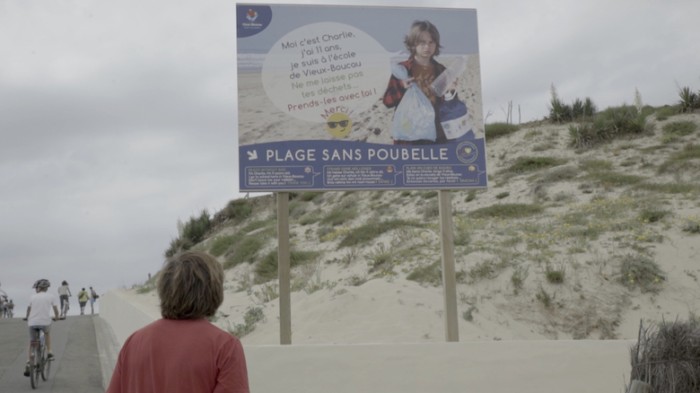
Why this is important
Humans need a healthy nature and environment to live in. It is a serious problem and tomorrow´s society, build with today´s children and youngsters will have to take care of the environment much more than we have been able to.
Marine litter is a known problem nowadays, although few entities worry about the true origin of the problem, which is investigated through social psychology. This Project not only covers this investigation but also suggests solutions and leaves space for citizen participation. The documentary shows a peculiar approach. The topic is treated from the artist´s intimate look, who along the narrated story, creates a number or works, transforming and giving significance to our society’s wastes. It costs us to get aware of the problem because once the cleaning companies have cleared the beaches the waste remains unseen. But in Carlos’ works our environmental print has a shape and it´s also real and visible.
Hondar 2050 addresses a sensitive public. Young people related to the sea, the environment, the sea and art. Not only youngsters, but also adults and kids, as the latter are the adults of tomorrow, because of this, kids and teenagers will be our target in this awareness campaign.
Carlos´ artistic and personal point of view, citizen participation in the forum and the documented story distinguishes this project from a passive and simple audiovisual classic document, proposing the viewer to take part, speak and act for the change. It has an educative component and a critical message which calls attention. The audience will be able to understand that to change the current situation, the most difficult, and also the most necessary is the change on ourselves, deep in our souls.
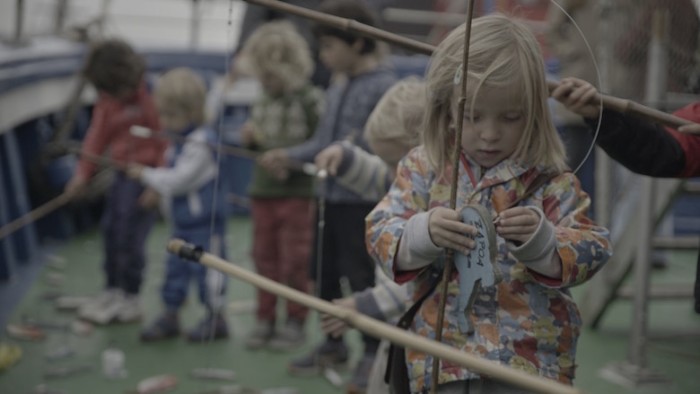
Goals of the crowdfunding campaign
To deal with marine litter, which also affects the Basque coast, awareness actions on citizens are needed to increase consciousness and a change on our behaviour. The last object of this project is then to sensitize about this common problem.
From this perspective, sounds natural that our project is done in a collective way. The crowd funding campaign is not only to raise necessary Money to carry out this project, but is also part of sensitive awareness to society.
Financial support is just the first step to solve the problem because it involves three fundamental aspects: interest, take an active part and share. It is also indispensable to create the project in a professional way, to create the documentary, the artistic works and the forum previously mentioned. At the same time the interest shown and the will from each person to share become voices to spread the project to reach a wider public, to achieve a greater impact.
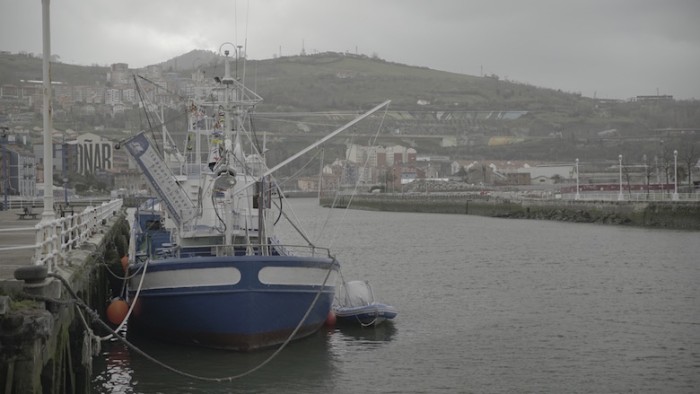
Team and experience
The team is composed by the Italian Cesare Maglioni, audiovisual producer and resident in Donostia, and Carlos Arrola, humanist and artist from Bilbao.
Cesare Maglioni
After many years working as an engineer, in 2016 Cesare starts to dedicate himself seriously to audiovisuals, co-directing and filming the medium-length documentary "Ceux Qui Nous Nourrissent" (Switzerland, 2016) which this year has also been played in the "Festival du Film Vert". In 2016, he produces a short-length documentary about pesticides “Pesticides, le point de vue des agriculteurs” (Switzerland, 2016) and “La Voz de César” (Spain, 2016) which has reached the Cinema Festival and Human Rights in Barcelona, Madrid, New York y Paris. Among others, he takes part in projects like “Big Dance” ( Enara Tejadas, Spain, 2016) and “Tarde Para el Recreo” (Pablo Malo, Spain, 2016). In 2017 he starts a number of short-length documentaries about the change in social behaviour, known as the film “Mañana” by Cyril Dion et Mélanie Laurent, named “Héros Ordinaires” (Switzerland, 2017) and follows with the short-length documentaries “El Olor de las Emociones” (Spain, 2017) and “Pura Ficción” (Spain)
Carlos Arrola Marés
Carlos was born in Bilbao in 1982. He graduated in Humanities and Companies in Deusto University in the faculty of Donosti and afterwards settled in London for three years to complete his artistic formation graduating in Blake College 2 years consecutively and taking part in collective expositions in Shoreditch.
He went back to Bilbao in 2008 to create Critical t-shirts, and exclusive clothe brand, limited editions by artists. These days he produced t-shirts, works and expositions in different cities to relate companies and art. As from 2012 he started to focus his artistic works and did some freelance works as a graphic designer, coordinator and organising cultural events.
Nowadays Carlos is suffering a process of comeback into technical, social and systemic level. The last few years, recycling has been a connection with the association Kosta Blue, creating and leading initiatives to pick up marine waste and creative art from materials which evidence a global problem.
